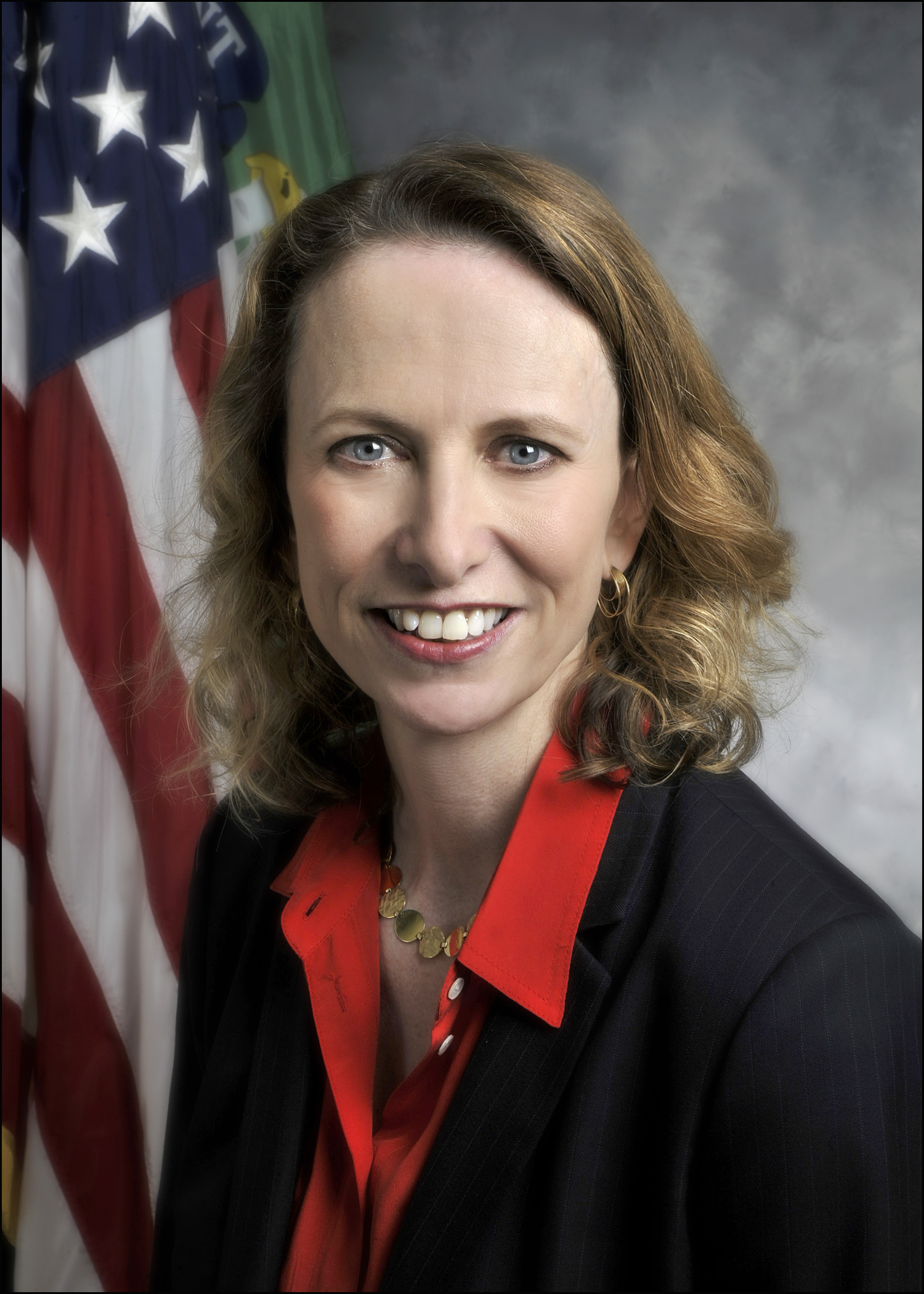
IMF SEMINAR EVENT
DATE: October 8, 2016
DAY: Saturday
3:30 PM - 4:45 PM
LOCATION: George Washington University, Jack Morton Auditorium
Overview
After decades of rapid and robust growth, the U.S. economy has lost some of its allure. GDP growth averaged 2 percent over the past 5 years, well below the 3 percent or more rates in the two decades before the global financial crisis. Productivity growth is at historic lows and population aging is weighing on labor supply. Some of the lackluster performance can be blamed on the drawn-out recovery, but there is growing evidence that market dynamism had begun to decline well before the Lehman crisis. Business startup and exit rates have fallen since the early 1990s and the labor market has steadily become less and less fluid. Are the gravitational forces of demographic change and productivity normalization finally pulling down growth, or is another innovative burst around the corner? The seminar examines the reasons behind the U.S. growth slowdown, the prospects for a recovery in productivity and dynamism, and the scope for policies to influence current growth trends.
Join the conversation via #IMFandUS
Join the conversation via #IMFandUS
The Future of Growth in the United States -- What Goes up Must Come Down?
The Future of Growth in the United States -- What Goes up Must Come Down?
Panelists
Moderator: Sam Fleming
 Sam Fleming is US Economics
Editor at the Financial Times, based in Washington DC. He previously worked as
the newspaper’s Financial Policy Correspondent in London, where he started in
October 2013. He worked as Economics Editor for The Times of London from 2010
and 2013. Between 2006 and 2010 he was Associate City Editor and Economics
Correspondent for the Daily Mail newspaper, also in London. He started his work
in journalism at Bloomberg in 2001, where he covered industry, the stock market
and latterly economics until 2005. Between 1997 and 2000 he worked at Slaughter
and May, a London-based corporate law firm, qualifying as a solicitor in 1999.
He studied law at the College of Law, London, from 1994 to 1996. His university
degree was at Pembroke College, Cambridge, where he graduated in 1994. He was
born in London in 1973.
Sam Fleming is US Economics
Editor at the Financial Times, based in Washington DC. He previously worked as
the newspaper’s Financial Policy Correspondent in London, where he started in
October 2013. He worked as Economics Editor for The Times of London from 2010
and 2013. Between 2006 and 2010 he was Associate City Editor and Economics
Correspondent for the Daily Mail newspaper, also in London. He started his work
in journalism at Bloomberg in 2001, where he covered industry, the stock market
and latterly economics until 2005. Between 1997 and 2000 he worked at Slaughter
and May, a London-based corporate law firm, qualifying as a solicitor in 1999.
He studied law at the College of Law, London, from 1994 to 1996. His university
degree was at Pembroke College, Cambridge, where he graduated in 1994. He was
born in London in 1973.
Panelist: Martin Baily

Martin Neil Baily, former senior fellow (2001–07) at the Peterson Institute for International Economics, is a senior fellow at the Brookings Institution, where he held the same position from 1979 to 1989. Baily re-joined Brookings in September 2007 to develop a program of research on business and the economy. He is studying financial regulation, growth, and how to speed the recovery. He is a Senior Advisor to the McKinsey Global Institute and to the Albright Stonebridge Group. He is the co-chair of the Financial Regulatory Reform Initiative of the Bipartisan Policy Center, and a member of the Squam Lake Group of financial economists.
In August 1999 Dr. Baily was appointed as Chairman of the Council of Economic Advisers. As Chairman, Dr. Baily served as economic adviser to the President, was a member of the President’s Cabinet and directed the staff of this White House agency. He completed his term as Chairman on January 19, 2001. Dr. Baily previously served as one of the three Members of the President’s Council of Economic Advisers from October 1994 until August 1996.
Baily has served as a Senior Advisor to the McKinsey Global Institute for many years and was an adviser to the Congressional Budget Office from 2006-09. Dr. Baily was a Principal at McKinsey & Company at the Global Institute in Washington, D. C. from September 1996 to July 1999 and from 2001 to 2007 he was a Senior Fellow at the Peterson Institute where he published books on the European economy and on pension reform. Baily was the co-chair of the Taskforce on Financial Reform convened by the Pew Charitable Trusts.
Dr. Baily earned his Ph.D. in economics in 1972 at the Massachusetts Institute of Technology. After teaching at MIT and Yale, he became a Senior Fellow at the Brookings Institution in 1979 and a Professor of Economics at the University of Maryland in 1989. He is the author of many professional articles and books, testifies regularly to House and Senate committees and is often quoted in the press.
Panelist: Karen Dynan

Dr. Karen Dynan serves as the U.S. Department of the Treasury's Assistant Secretary for Economic Policy and Chief Economist. In this role, Dr. Dynan leads the Office of Economic Policy, which is responsible for analyzing and reporting on current and prospective economic developments and assisting in the determination of appropriate economic policies.
From 2009 to 2013, Dr. Dynan was the vice president and co-director of the Economic Studies program at the Brookings Institution. Prior to joining Brookings, she served on the staff of the Federal Reserve Board for 17 years, most recently as a senior adviser. While at the Fed, she played a leadership role in a number of areas, including macroeconomic forecasting, analysis of household and real estate finance conditions, and the policy response to the financial crisis. She also served as a senior economist at the White House Council of Economic Advisers, from 2003-2004, and as a visiting assistant professor at Johns Hopkins University in 1998.
Dr. Dynan is an expert on macroeconomic policy and household financial issues who has published widely in leading economics journals. She received her Ph.D. in economics from Harvard University and her A.B. from Brown University.
Panelist: John Haltiwanger

John C. Haltiwanger, is a Distinguished University Professor in the Department of Economics at the University of Maryland. He is also the first recipient of the Dudley and Louisa Dillard Professorship in 2013. He received his Ph.D. from the Johns Hopkins University in 1981. After serving on the faculty of UCLA and Johns Hopkins, he joined the faculty at Maryland in 1987. In the late 1990s, he served as Chief Economist of the U.S. Census Bureau. He is a Research Associate of the National Bureau of Economic Research, a Senior Research Fellow at the Center for Economic Studies at the U.S. Census Bureau, and a Fellow of the Society of Labor Economics. He has played a major role in developing and studying U.S. longitudinal firm-level data. Using these data, he has developed new statistical measures and analyzed the determinants of firm-level job creation, job destruction and economic performance. He has explored the implications of these firm dynamics for aggregate U.S. productivity growth and for the U.S. labor market.
The statistical and measurement methods he has helped develop to measure and study firm dynamics have been increasingly used by many statistical agencies around the world. His own research increasingly uses the data and measures on firm dynamics from a substantial number of advanced, emerging and transition economies. His work with the statistical agencies has been recently recognized in his being awarded the Julius Shiskin Award for economic statistics in 2013 and the Roger Herriott Award for innovation in federal statistics in 2014. He has published more than 100 academic articles and numerous books including Job Creation and Destruction (with Steven Davis and Scott Schuh, MIT Press).






